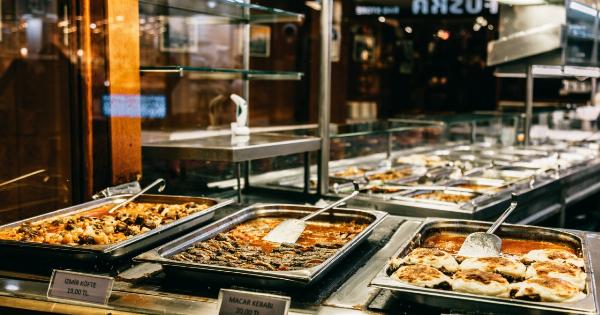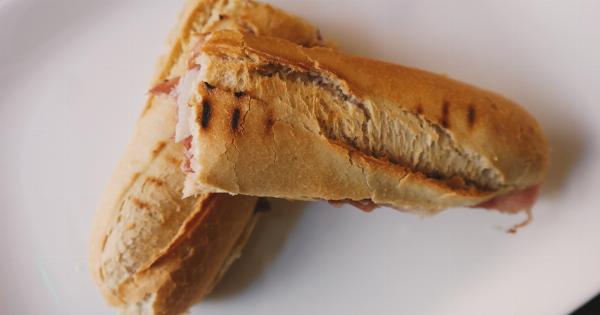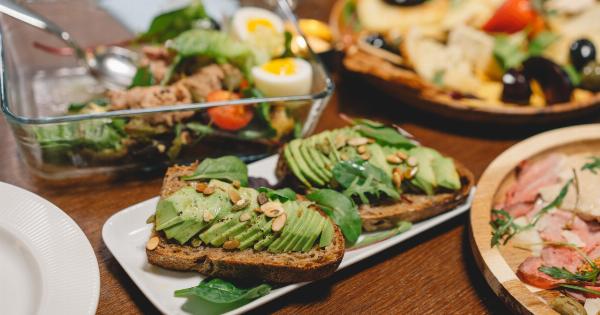Getting a good night’s sleep is essential for our overall health and well-being. It helps improve our focus, mood, and energy levels throughout the day. While there are many factors that can affect our sleep, diet plays a significant role.
The food we eat can either promote or hinder a good night’s sleep. In this article, we will discuss what foods you should include in your diet to improve sleep quality.
1. Kiwi
Kiwi is a delicious and nutritious fruit that is known to have sleep-inducing properties. It contains high levels of antioxidants and serotonin, a hormone that helps regulate sleep and wake cycles.
Studies have shown that consuming kiwi on a regular basis can improve sleep quality, reduce time to fall asleep, and increase sleep duration.
2. Tart Cherry Juice
Tart cherry juice is another excellent choice to promote a good night’s sleep. It is rich in melatonin, a hormone that regulates sleep.
Drinking a glass of tart cherry juice before bedtime has been found to increase melatonin levels in the body, leading to improved sleep quality and duration.
3. Fatty Fish
Fatty fish like salmon, trout, and mackerel are excellent sources of omega-3 fatty acids, vitamin D, and several other nutrients that are crucial for a good night’s sleep.
These nutrients help regulate serotonin levels, reduce inflammation, and promote overall brain health, leading to better sleep.
4. Almonds
Almonds are a fantastic snack option to improve sleep quality. They are rich in magnesium, which acts as a natural muscle relaxant and helps calm the nervous system.
Consuming a handful of almonds before bed can help you relax and prepare your body for a restful sleep.
5. Herbal Teas
Sipping on a warm cup of herbal tea before bed can be a soothing ritual that promotes relaxation and sleep. Chamomile tea, in particular, has been used for centuries as a natural remedy for insomnia.
Other herbal teas like lavender, valerian root, and passionflower are also known for their calming properties.
6. White Rice
White rice has a high glycemic index, which means it can promote sleep when consumed a few hours before bed. It triggers a release of insulin, which helps tryptophan (an amino acid) enter the brain and promote the production of serotonin and melatonin.
This can help improve sleep quality and reduce the time it takes to fall asleep.
7. Bananas
Bananas are not only a tasty fruit but also a great option to include in your bedtime routine. They are rich in potassium and magnesium, which help relax muscles and calm the nervous system.
Consuming a banana before bed can help regulate your sleep-wake cycles and promote a deep and restful sleep.
8. Whole Grains
Whole grains like oats, quinoa, and brown rice are excellent sources of complex carbohydrates. They have a low glycemic index, which means they release glucose slowly into the bloodstream, providing a steady supply of energy throughout the night.
Including whole grains in your evening meal can promote better sleep by preventing blood sugar spikes and crashes.
9. Turkey
Turkey is a lean protein source that contains tryptophan, an amino acid that plays a crucial role in the production of serotonin and melatonin. These neurotransmitters are involved in regulating sleep and promoting a sense of relaxation.
Adding turkey to your dinner can contribute to a more peaceful night’s sleep.
10. Warm Milk
A warm glass of milk has long been a popular remedy for promoting sleep. Milk contains tryptophan, calcium, and magnesium, all of which have calming and sleep-inducing properties.
Additionally, the ritual of enjoying a warm beverage before bed can help signal to your body that it’s time to wind down and prepare for sleep.
What Not to Eat for a Good Night’s Sleep
Just as certain foods can promote a good night’s sleep, there are also foods that you should avoid consuming close to bedtime. These foods can interfere with the quality and duration of your sleep:.
1. Caffeine
Consuming caffeine-containing foods and beverages like coffee, tea, chocolate, and energy drinks can stimulate the nervous system and make it difficult to fall asleep.
It is recommended to avoid these stimulants at least four to six hours before bedtime to ensure a restful sleep.
2. Spicy Foods
Spicy foods can lead to indigestion, heartburn, and discomfort during the night, making it challenging to sleep peacefully. It is best to avoid consuming spicy foods, especially if you are prone to acid reflux or digestive issues.
3. High-Fat Foods
Foods that are high in fat can take longer to digest, causing discomfort and interfering with sleep. Avoid consuming greasy, fatty foods before bedtime to prevent digestive issues and promote a more restful sleep.
4. Alcohol
While alcohol may initially make you feel drowsy, it can disrupt your sleep patterns and prevent you from entering deep and restorative sleep stages. It is recommended to avoid alcohol close to bedtime to ensure a better quality of sleep.
5. Carbonated Drinks
Carbonated drinks like soda and sparkling water can cause bloating and discomfort, making it difficult to sleep comfortably. Opt for non-carbonated beverages or water if you feel thirsty before bed.
6. Heavy, Spicy, or Fatty Meals
Consuming heavy, spicy, or fatty meals close to bedtime can lead to indigestion, acid reflux, and discomfort that hinders sleep. It is best to have these types of meals earlier in the evening to allow enough time for digestion before lying down.
7. Sugary Treats
Eating sugary treats or desserts before bed can cause blood sugar spikes and crashes, leading to restless sleep. It is advisable to limit your intake of sugary foods and opt for healthier alternatives if you feel like having a snack before bed.
Conclusion
Diet plays a crucial role in promoting a good night’s sleep.
By incorporating sleep-friendly foods like kiwi, tart cherry juice, fatty fish, almonds, herbal teas, white rice, bananas, whole grains, turkey, and warm milk into your diet, you can improve the quality and duration of your sleep. Avoiding foods that can interfere with sleep, such as caffeine, spicy foods, high-fat foods, alcohol, carbonated drinks, heavy meals, and sugary treats, is equally important.
By making these dietary adjustments and adopting healthy sleep habits, you can optimize your sleep and wake up feeling refreshed and energized.


























